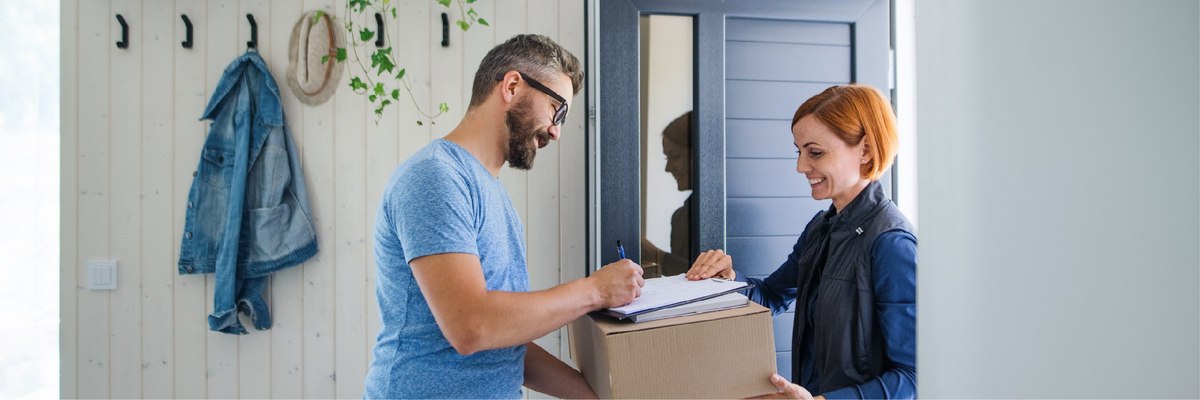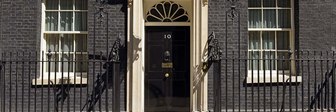No one is surprised that the British economy, like the economies of all other developed countries hit by coronavirus, has gone into meltdown. When you stop people from working, that’s what’s going to happen. Still, the extent of the continuing collapse is pretty sobering. One pundit has called the recession we’re now in ‘the recession to end all recessions’. So the focus now is on what sort of recovery we can expect. But that depends to a fair extent on us. It might seem, on the face of it, an odd question to ask, but how much do we want the economy to go back to firing on all cylinders?
It was Paul Johnson, the director of the highly-respected Institute for Fiscal Studies, who made the remark about the recession to end all recessions. The figures back him up. Even before Covid arrived and the government imposed the lockdown at the end of March, gross domestic product, GDP, the standard measure of the size of the economy, was shrinking. The latest figures show it had fallen by 2% in the first quarter of the year. In the single month of March alone it dropped by 5.8%. Since then, with the lockdown in full force and with the prospect of its being relaxed only very gradually, the Bank of England is expecting GDP to shrink by 30% in the first half of the year. Nothing like this has been seen for over three hundred years.
Whether it was necessary deliberately to contract the economy in this way is a matter that only future inquiries and the history books can decide. For now the issue is what sort of recovery we can expect. Or to put it in other terms, which letter of the alphabet best describes what can be forecast. The Bank of England and the independent Office for Budget Responsibility are fairly optimistic. They’ve opted for the letter ‘V’: the recession will be sharp and deep, as we’re already seeing, but the recovery will be equally sharp and we’ll get back to where we were relatively quickly. The Treasury, however, is reported to be far less sanguine. It’s got more of a ‘U’ in mind: the recovery won’t be so sharp and swift but instead the economy will drag along the bottom for quite a while before gradually picking up. In specific terms it fears that quite a lot of businesses (and therefore quite a lot of jobs) won’t survive the shock that’s happened. Some are even more pessimistic. They’re opting for ‘L’: you can work that one out for yourself.
To some extent, which letter turns out to be the accurate one is a matter for us. That’s because recovery depends on demand in the economy picking up and demand is heavily dependent on how much you and I decide to spend – on what economists call ‘consumption’. It accounts for over 60% of demand in the economy. The importance of consumption to modern economies goes some of the way to explain why the government introduced its ‘furlough’ scheme to pay workers to stay at home and do nothing during the crisis. About a third of the workforce, or 7.5m people, have been helped in this way. It wasn’t just that in a civilised society it would be unthinkable for a government that had decided it needed to stop people going to work then to leave them to succumb to poverty, hunger and worse; it was also because in a modern economy there need to be people with money to spend on things to keep it all going.
In fact, in the eyes of economists, that’s what you and I chiefly are: consumers. You might think of yourself as something rather different – a citizen, say, or a parent, or even a human being, but in the greater scheme of things that’s not so. Your role in life, what God has put you on this Earth to do, is to consume. And so your contribution to the recovery will be to spend. I can see the posters going up now: ‘Your Country Needs You (to spend)’.
The flipside of the lockdown, however, has been that for the duration of this very strange period there has been less to spend on. As economists would put it: it’s been a crisis of supply as well as of demand. To put it in layman’s terms, even if you wanted to ‘demand’ a meal in a restaurant there wouldn’t be a ‘supply’ to meet it because the restaurants have been closed. As a result we’ve been forced to spend less whether we wanted to or not. And quite dramatically so. Figures for April show that household consumption fell by 36.5% compared with April last year. That’s a hell of a cut in spending (and so of course explains the severity of the recession).
For many people, of course, the loss of income and the consequent loss of spending power has been very tough. That’s because all their money, even before the crisis, went on essentials so their further enforced cut in spending pared things back even further to the bone. Stories of families going hungry, despite government help, are the result. But for others – probably most people – the sudden, imposed break in their spending habits has had the effect of making them ask the question: do we need to spend as much as we used to do on the things we felt we had to buy? And it’s led to a further question. To those people for whom work falls short of being pure joy (and that probably accounts for most), the thought arises: if we didn’t spend so much, we wouldn’t need to work so much … so what sort of life do we want to lead?
It’s probably because of the suddenness of the change in lifestyle that has been visited upon us all that this question seems to be being asked as widely as (it seems to me) it is. And it seems not confined either by class or generation. I confess to being surprised (perhaps I shouldn’t be) that young people I’ve come into contact with, and who I would have expected to be most impatient with the lockdown, most anxious to get back to their old lives, seem to be reacting differently, not just accommodating themselves to the change but volunteering aspects of it they find themselves approving. And I don’t just mean the chance to stay in bed till midday.
A couple of weeks ago I touched on an aspect of the new world which does seem to appeal to many young people (and older ones too, of course), making them pause in any rush to return to the old ways. Clean air, the collapse in carbon emissions and the like appeal to anyone concerned about the condition of the old world. As ‘citizens’ we may question whether we want to go back to the status quo ante. Now I wonder whether the experience of not spending so much will raise a similar question in our role as ‘consumers’. Is everything we’re used to spending our money on ‘essential’?
King Lear had something to say about this. ‘O reason not the need! Our basest beggars/Are in the poorest thing superfluous….’ That’s to say, nothing is essential and everything is inessential (adding that that’s especially true when we find ourselves judging the poor: if expensive trainers matter to some poor people more than other things we might think more essential, so be it). But for ourselves after the experience of the last few weeks, we are perhaps starting to ‘reason the need’. Has our life fallen apart because we’ve not been able to buy the latest iPhone, eat out, get on a plane? Hasn’t there been a plus to our not doing so – discovering other, cheaper pleasures we’d forgotten, never mind the extra leisure we’ve enjoyed by being furloughed/working from home/not being on the treadmill of working-to-spend, working-to-spend?
So, when it’s over, do we want to go back to a world in which it’s par for the course to be required to trek to Thailand for your niece’s wedding because that’s where she and her boyfriend met in their gap year? Or in which your husband’s fortieth birthday must obviously be celebrated in a posh restaurant rather than at home? Or in which you’ve just got to get the bigger TV screen even though the current one already takes up most of the wall?
Some parts of the economy are already terrified that we are going to start revising our consumption assumptions. Ask the airline industry. Or the theatres. So if this head-scratching about getting back on to the consumption treadmill were to catch on and we decided that, actually, we might start doing things a bit differently from now on, we could say goodbye to the V-shaped recovery. It’d be more like a ‘U’ simply because we said we weren’t going to carry on playing the game. The Treasury’s current worry that any recovery will be more like a ‘U’ than a ‘V’ is based on its fear that many businesses won’t survive even if we all resume our old spending habits. Should we, in addition, decide we don’t want to do so, then a ‘U’ might even be an optimistic forecast.
Were that to happen, the effect would be clear. More businesses would go bust and more people would lose their jobs because your and my spending is their income. Furthermore, government spending would be in jeopardy because tax revenues would be hit. I wonder how much the Treasury has already revised down its expected revenue from Air Passenger Duty. And what is its estimate of how much less there would be to spend on the NHS if the recovery were a ‘U’ or even an ‘L’ compared with a ‘V’?
Such thoughts give government and economists the shudders. In their eyes it’s absolutely imperative that we get the economy back working on full cylinders. And the logic is clear. For that to happen we mustn’t abandon our old spending habits. In fact we must redouble them. Acceleration of spending is everything in a modern economy. In the old days it was kept slow because of that ludicrously old-fashioned notion that we needed to save money before we could spend it but fortunately easy credit got us out of that particular slow lane. Now further techniques may be required to get us to pedal more furiously on the treadmill.
Luckily, consumer capitalism is good at thinking up new ruses. Advertising was a good one. Now social media is even better. We’ve only to hint online that we might be vaguely interested in buying something and we’re deluged with ads telling us who can supply them. And since social media demands we permanently present an image of ourselves as enjoying the best possible life at all possible times, then of course we need to keep spending to prove it
Are we just going to go along with this acceleration in consumption? There is no evidence it makes us any happier. Indeed the evidence is overwhelmingly the other way: rich developed societies are markedly less happy now than they were back in the 1950s when we consumed so much less, when we were still, well, ‘people’ rather than ‘consumers’.
In a case of perhaps fortuitous timing, the Oxford social geographer, Danny Dorling, has just published a book called: ‘SLOWDOWN: the end of the Great Acceleration – and why it’s good for the Planet, the Economy, and Our Lives’. Perhaps the virus came along to boost sales.
So, after the experience of the lockdown, are you planning to slow your consumption? Or, with thoughts of a ‘V’-shaped recovery in mind, do you plan to resume your duty as a consumer and start accelerating again?
Let us know your views.








